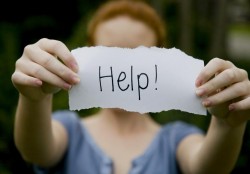Clinical Depression Treatment Options
People suffering from depression often feel alone and emotionally cut off from the world around them. Symptoms of clinical depression derive from both physical and psychological origins. In effect, the longer this condition persists, the harder it is to treat.
According to the American Psychological Association, depression exists as the most common form of mental disorder. As distressing as this condition can be, clinical depression is actually quite treatable.
In general, clinical depression treatment options take two forms: medication and psychotherapy. While some people may only require psychotherapy, those experiencing more severe symptoms will likely require both medication and psychotherapy treatment.
Clinical Depression
According to the National Institute of Mental Health, as many as 15.7 million American adults experienced one or more major depressive episodes in 2013. This equals out to 6.7 percent of the U. S. population. In general, symptoms of a major depressive episode or clinical depression persist for a minimum of two weeks and typically take the form of:
- Sadness
- Loss of interest in daily life activities
- Poor self-image
- Change in appetite
- Problems sleeping
- Problems concentrating
- Fatigue
Depression symptoms can develop in response to a chronic medical condition, substance abuse as well as to disappointment and loss. Likewise, the type of treatment a person requires can vary depending on his or her circumstances.
Clinical Depression Treatment Options
Medications
Feelings of depression result from brain chemical imbalances that persist for long periods of time. For people who’ve lived with depression for months or years at a time, these imbalances have become the “norm” in terms of how the brain works from day-to-day.
Under these conditions, medication treatment may well be necessary to help correct for chemical imbalances in the brain, according to the University of Pittsburg. As a clinical depression treatment option, medications most often used include:
- Tricyclic Antidepressants – help restore norepinephrine and serotonin chemical levels in the brain
- Selective Serotonin Reuptake Inhibitors – act on serotonin chemical levels
- Monoamine Oxidase Inhibitors – reduces monoamine oxidase production, an enzyme that removes serotonin, norepinephrine and dopamine chemicals from the brain
- Serotonin and Norepinephrine Reuptake Inhibitors – act on serotonin and norepinephrine chemical levels
The type of medication prescribed can vary depending on the types of symptoms a person experiences. Overall, selective serotonin reuptake inhibitors and serotonin and norepinephrine reuptake inhibitors produce the fewest side effects compared to the other two medication types. A person can expect to remain on a treatment medication for anywhere from six to 12 months.
Psychotherapy
While not everyone struggling with depression will require medication treatment, everyone will require some form of psychotherapy treatment. In effect, the faulty thinking patterns that come with clinical depression work to support the overall state of chemical imbalance in the brain, so it’s essential for a person to replace these patterns with a healthy mindset.
Psychotherapy-based clinical depression treatment options most commonly used include cognitive-behavioral therapy and interpersonal therapy. Cognitive-behavioral therapy helps a person restructure the underlying belief systems that drive destructive thinking patterns. Interpersonal therapy helps a person identify destructive relationship interactions that may be aggravating clinical depression symptoms.
Considerations
More than anything else, the importance of getting needed treatment help as soon as possible can make all the difference in the world in terms of the level of treatment necessary to see noticeable improvement. Unfortunately, many people suffering from clinical depression don’t seek out needed treatment help. Overall, the range of clinical depression treatment options available offer a person the best chance of overcoming depression’s effects and enjoying everyday life again.






